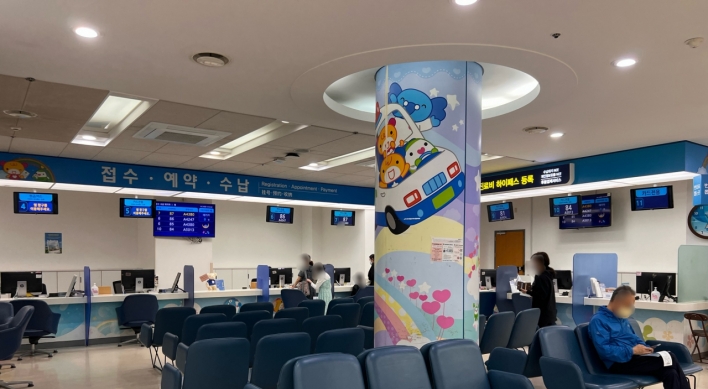Over the course of the last decade I’ve flown between Shanghai and Beijing dozens of times with only one on-time arrival to show for it. It’s an absurd and miserable record, but one that ― data confirm ― others share. According to a June 2013 survey of 35 major international airports, Beijing and Shanghai were the worst and second worst, respectively, with only 18.2 percent and 28.72 percent of flights leaving on-time.
Who’s to blame for this sorry state of affairs? China’s ever-growing ranks of air passengers tend to point fingers at the carriers themselves, and over the last few years China has become accustomed to regular, often outrageous passenger protests (including stormed runways), violence against air staff, and ― predictably ― extravagant demands for compensation. I’ve never personally witnessed the most extreme behaviors, but I must concede that I sympathize with the frustration. Chinese airlines rarely provide information about delays to stranded passengers, so it’s only natural to assume that they’re covering up mistakes on their part.
If they’re covering up anything, though, it’s probably the Chinese military’s capricious use of the vast amount of airspace it controls. According to Bloomberg News, the Chinese air force lays claim to roughly 52 percent of East China’s airspace, while Chinese civil aviation uses only around a fifth of the routes that would otherwise be available. That’s a recipe for airport traffic jams, which only grow worse when ― as rumors held this week ― the Chinese military decides to hold exercises that infringe on civil airspace.
Chinese airlines, the civil aviation authorities, and the Chinese media have long hesitated to blame the powerful military for delays (criticizing the military for any reason in China is always a tricky proposition). Instead they resort to euphemisms like “air traffic restrictions” to hint at the problem, as they did this week when hundreds of flights were canceled at Shanghai airports.
That, however, is a recipe for airline passenger unrest, especially when ― as in the case of the current delays ― they’re expected to continue for several weeks. In China, where maintaining social harmony is the utmost goal of the Communist Party (even at airports), this sets up an uncomfortable choice between maintaining order, and respecting the military’s unstated expectation that it be unassailable.
Two years ago, before Chinese air delays and their unpleasant consequences became an international story, the choice would have been an easy one: The military wins. But China’s air traffic continues to grow and so do the potential airport blowups. Politically, then, the military no longer has any choice but to share responsibility for the delays. Thus on Thursday, the CAAC issued a statement blaming the recent flight delays on “thunderstorms and routine military maneuvers.” It was in all likelihood a first ― and one that the military probably isn’t happy about.
For China’s ambitious airlines and airports, this should be viewed as a victory for transparency. Of course, one modest statement in the midst of a busy travel season isn’t likely to change much in the short term. But it should open a discussion about whether in the long term, the military is serving itself, its country, and its economy well by causing air traffic jams that generate ill will and real economic costs.
By Adam Minter
Adam Minter is an American writer based in Asia, where he covers politics, culture, business and junk. He is the author of “Junkyard Planet: Travels in the Billion Dollar Trash Trade.” ― Ed.
(Bloomberg)
Who’s to blame for this sorry state of affairs? China’s ever-growing ranks of air passengers tend to point fingers at the carriers themselves, and over the last few years China has become accustomed to regular, often outrageous passenger protests (including stormed runways), violence against air staff, and ― predictably ― extravagant demands for compensation. I’ve never personally witnessed the most extreme behaviors, but I must concede that I sympathize with the frustration. Chinese airlines rarely provide information about delays to stranded passengers, so it’s only natural to assume that they’re covering up mistakes on their part.
If they’re covering up anything, though, it’s probably the Chinese military’s capricious use of the vast amount of airspace it controls. According to Bloomberg News, the Chinese air force lays claim to roughly 52 percent of East China’s airspace, while Chinese civil aviation uses only around a fifth of the routes that would otherwise be available. That’s a recipe for airport traffic jams, which only grow worse when ― as rumors held this week ― the Chinese military decides to hold exercises that infringe on civil airspace.
Chinese airlines, the civil aviation authorities, and the Chinese media have long hesitated to blame the powerful military for delays (criticizing the military for any reason in China is always a tricky proposition). Instead they resort to euphemisms like “air traffic restrictions” to hint at the problem, as they did this week when hundreds of flights were canceled at Shanghai airports.
That, however, is a recipe for airline passenger unrest, especially when ― as in the case of the current delays ― they’re expected to continue for several weeks. In China, where maintaining social harmony is the utmost goal of the Communist Party (even at airports), this sets up an uncomfortable choice between maintaining order, and respecting the military’s unstated expectation that it be unassailable.
Two years ago, before Chinese air delays and their unpleasant consequences became an international story, the choice would have been an easy one: The military wins. But China’s air traffic continues to grow and so do the potential airport blowups. Politically, then, the military no longer has any choice but to share responsibility for the delays. Thus on Thursday, the CAAC issued a statement blaming the recent flight delays on “thunderstorms and routine military maneuvers.” It was in all likelihood a first ― and one that the military probably isn’t happy about.
For China’s ambitious airlines and airports, this should be viewed as a victory for transparency. Of course, one modest statement in the midst of a busy travel season isn’t likely to change much in the short term. But it should open a discussion about whether in the long term, the military is serving itself, its country, and its economy well by causing air traffic jams that generate ill will and real economic costs.
By Adam Minter
Adam Minter is an American writer based in Asia, where he covers politics, culture, business and junk. He is the author of “Junkyard Planet: Travels in the Billion Dollar Trash Trade.” ― Ed.
(Bloomberg)
-
Articles by Korea Herald




![[Grace Kao] Hybe vs. Ador: Inspiration, imitation and plagiarism](http://res.heraldm.com/phpwas/restmb_idxmake.php?idx=644&simg=/content/image/2024/04/28/20240428050220_0.jpg&u=)

![[Herald Interview] Mom’s Touch seeks to replicate success in Japan](http://res.heraldm.com/phpwas/restmb_idxmake.php?idx=644&simg=/content/image/2024/04/29/20240429050568_0.jpg&u=)


![[News Focus] Lee tells Yoon that he has governed without political dialogue](http://res.heraldm.com/phpwas/restmb_idxmake.php?idx=644&simg=/content/image/2024/04/29/20240429050696_0.jpg&u=20240429210658)









![[Today’s K-pop] Seventeen sets sales record with best-of album](http://res.heraldm.com/phpwas/restmb_idxmake.php?idx=642&simg=/content/image/2024/04/30/20240430050818_0.jpg&u=)